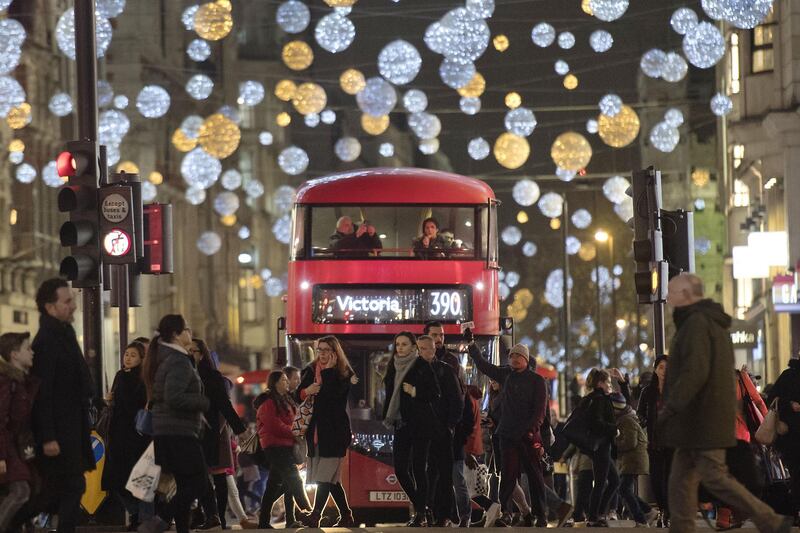Retail sales in Britain sank in the holiday shopping month of December, official figures showed Friday, rounding off the worst year in four as a Brexit-related rise in inflation weighed on spending.
The Office for National Statistics said retail sales, including fuel, fell by 1.5 per cent in December from the month before, double what most economists were predicting. Though the fall was partly related to the fact that much of the non-food Christmas-related shopping has shifted to November with the rise of Black Friday, the sharp decline means that for 2017 as a whole, retail sales increased by 1.9 per cent, the lowest annual growth since 2013.
"Consumers continue to move Christmas purchases earlier, with higher spending in November and lower spending in December than seen in previous years," said senior statistician Rhian Murphy. "However, the longer-term picture is one of slowing growth, with increased prices squeezing people's spending."
Many retailers had been hoping that December would help make up for some of the disappointments during the year. However, the figures, coupled with downbeat trading updates from retailers like Marks & Spencer and Debenhams, show consumers remained wary of splashing out as price rises continued to outstrip wage increases — despite some heavy discounting.
Household incomes have been depressed since inflation spiked following the pound's fall in the wake of Britain's vote to leave the European Union in June 2016. That raised the cost of imported goods and retailers have largely had to pass those onto consumers in the form of higher prices.
Meanwhile, wage rises remained relatively weak despite the fact that unemployment has fallen to multi-decade lows as workers' bargaining power remained weak, partly in light of the Brexit uncertainty.
_______________
Read more:
[ 'Brexit squeeze' on consumers to continue in 2018 ]
[ Fall in UK Christmas spending caps off worst year since 2012, finds Visa survey ]
[ Shape of post-Brexit Britain to become clearer in 2018 ]
_______________
Retail sales are a crucial element of the British economy, so when they falter so does the wider economy. And that's been the case in 2017, when Britain transitioned from being one of the fastest-growing major economies to one of the slowest.
Brexit is dominating Britain's economic outlook and it's likely to continue to be a key factor affecting consumer spending this year. Many economists think uncertainty about what Britain's trading relationship will be with the rest of the EU after Brexit day in March 2019 will mean another tough year ahead for the economy.
However, there are some hopes for retailers as a recent rally in the pound to $1.39 — its highest since before the Brexit vote — should help inflation fall back this year from the current 3 per cent and help push up wage growth.
"This means we could see an end to falling real wages in the coming months, which would provide a welcome fillip to cash-strapped households," said Ben Brettell, senior economist at stockbrokers Hargreaves Lansdown.






